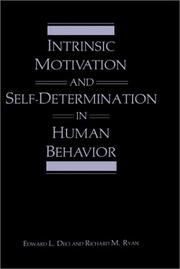
ISBN: 9780736062503 0736062505 Year: 2007 Publisher: Champaign Human kinetics.
Abstract | Keywords | Export | Availability | Bookmark
 Loading...
Loading...Choose an application
- Reference Manager
- EndNote
- RefWorks (Direct export to RefWorks)
159.9:796 --- Psychologie van de sport. Sportpsychologie. Coachen. Mentale training --- Exercise --- Intrinsic motivation. --- Sports --- Physical Fitness --- Motivation. --- Experimentele psychologie --- Psychological aspects. --- psychology. --- motivatie en emotie --- motivatie en emotie. --- 159.9:796 Psychologie van de sport. Sportpsychologie. Coachen. Mentale training --- Intrinsic motivation --- Exercise psychology --- Motivation in sports --- Sport psychology --- Sports motivation --- Sports psychology --- Sports sciences --- Motivation (Psychology) --- Psychological aspects
Book
Year: 2015 Publisher: Washington, D.C., The World Bank,
Abstract | Keywords | Export | Availability | Bookmark
 Loading...
Loading...Choose an application
- Reference Manager
- EndNote
- RefWorks (Direct export to RefWorks)
This paper examines the effects of pecuniary compensation on the ability and motivation of individuals in organizations with non-pecuniary or pro-social missions. In particular, the paper compares flat pay systems, unrelated with ability or effort, to two other systems that are considered superior: high-powered, pay for performance schemes and more traditional, "Weberian" schemes that calibrate pay to ability, independent of effort. The analysis uses a sample of future public sector workers and finds that all three pay schemes attract motivated workers into tasks with a pro-social mission. However, flat pay schemes also attract low ability workers. In the short run, pay-for-performance schemes generate higher effort than flat pay and pay-for-ability systems, a difference driven entirely by effects on unmotivated workers. Once selection effects are accounted for, however, workers with pay for ability and pay for performance exert statistically indistinguishable levels of effort in the pro-social task. Moreover, pay for ability elicits effort at lower cost than pay for performance.
Civil Service --- E-Business --- Education --- Education & Society --- Educational Sciences --- Extrinsic Motivation --- Industry --- Intrinsic Motivation --- Labor Policies --- Performance --- Private Sector Development --- Public Sector Reform --- Social Protections and Labor --- Technology Industry
Book
Year: 2013 Publisher: Washington, D.C., The World Bank,
Abstract | Keywords | Export | Availability | Bookmark
 Loading...
Loading...Choose an application
- Reference Manager
- EndNote
- RefWorks (Direct export to RefWorks)
Pay schemes in the public sector aim to attract motivated, high-ability applicants. A nascent literature has found positive effects of higher pay on ability and no or slightly positive effects on motivation. This paper revisits this issue with a novel subject pool, students destined for the private and public sectors in Indonesia. The analysis uses dictator games and real effort tasks to examine wage effects on a measure of motivation that exactly matches the mission of the public sector task. The model and experimental design allow for precisely measuring (1) the distribution of ability over the effort task; (2) the distribution of motivational preferences for public sector missions; and (3) outside options when choosing to work for public sector missions. Three novel conclusions emerge. First, more pro-social workers do, in fact, exert higher effort in a pro-social task. Second, in contrast to previous research, motivated individuals are more likely to join the public sector when public sector pay is low than when it is high. Third, real public sector workers exhibit greater pro-sociality than private sector workers, even for entrants into the Indonesian Ministry of Finance.
Civil Service --- Economic Stabilization --- Education --- Educational Sciences --- Extrinsic Motivation --- Intergovernmental Fiscal Relations and Local Finance Management --- Intrinsic Motivation --- Macroeconomics and Economic Growth --- Performance --- Public Sector Development --- Public Sector Management and Reform --- Public Sector Reform
Book
Year: 2015 Publisher: Washington, D.C., The World Bank,
Abstract | Keywords | Export | Availability | Bookmark
 Loading...
Loading...Choose an application
- Reference Manager
- EndNote
- RefWorks (Direct export to RefWorks)
This paper examines the effects of pecuniary compensation on the ability and motivation of individuals in organizations with non-pecuniary or pro-social missions. In particular, the paper compares flat pay systems, unrelated with ability or effort, to two other systems that are considered superior: high-powered, pay for performance schemes and more traditional, "Weberian" schemes that calibrate pay to ability, independent of effort. The analysis uses a sample of future public sector workers and finds that all three pay schemes attract motivated workers into tasks with a pro-social mission. However, flat pay schemes also attract low ability workers. In the short run, pay-for-performance schemes generate higher effort than flat pay and pay-for-ability systems, a difference driven entirely by effects on unmotivated workers. Once selection effects are accounted for, however, workers with pay for ability and pay for performance exert statistically indistinguishable levels of effort in the pro-social task. Moreover, pay for ability elicits effort at lower cost than pay for performance.
Civil Service --- E-Business --- Education --- Education & Society --- Educational Sciences --- Extrinsic Motivation --- Industry --- Intrinsic Motivation --- Labor Policies --- Performance --- Private Sector Development --- Public Sector Reform --- Social Protections and Labor --- Technology Industry

ISBN: 0306420228 1489922733 1489922717 Year: 1985 Publisher: New York (N.Y.): Plenum
Abstract | Keywords | Export | Availability | Bookmark
 Loading...
Loading...Choose an application
- Reference Manager
- EndNote
- RefWorks (Direct export to RefWorks)
Social psychology --- Intrinsic motivation --- Personality --- Personality theory --- Personality traits --- Personology --- Traits, Personality --- Individuality --- Temperament --- Motivation (Psychology) --- Intrinsic motivation. --- motivatie en emotie --- -Psychologie: zie ook: Psychiatrie: n-{616.89-008} en n-{615.851} --- motivatie en emotie. --- -Human biology --- -Personal identity --- Personality. --- Psychology --- Experimentele psychologie --- Philosophy. --- 159.9 --- Personal identity --- Personality psychology --- Persons --- Self --- 159.9 Psychologie --- 159.9 Psychologie: zie ook: Psychiatrie: n-{616.89-008} en n-{615.851} --- Psychologie --- Psychologie: zie ook: Psychiatrie: n-{616.89-008} en n-{615.851} --- Philosophy --- 159.9 Psychology

ISBN: 0126190704 9780126190700 9786611054410 0080509096 1281054410 0585492123 9780585492124 9780080509099 Year: 2000 Publisher: San Diego Academic Press
Abstract | Keywords | Export | Availability | Bookmark
 Loading...
Loading...Choose an application
- Reference Manager
- EndNote
- RefWorks (Direct export to RefWorks)
In understanding human behavior, psychologists have long been interested in what motivates specific actions. Debates have pitted extrinsic motivators (e.g. rewards/punishment) against intrinsic motivation in attempting to determine what best motivates individuals. This book provides a summary view of what research has determined about both extrinsic and intrinsic motivation, and clarifies what questions remain unanswered. Divided into three sections, section I revisits the debate about the effects of extrinsic incentives or constraints on intrinsic motivation and creativity, and identifies the
Motivation in education. --- Motivation (Psychology) --- Motivation (Psychology). --- Motivation in education --- #PBIB:2004.4 --- Academic motivation --- Academic achievement --- Learning, Psychology of --- Action, Psychology of --- Drive (Psychology) --- Psychology of action --- Psychology --- Intrinsic motivation --- Motivation intrinsèque --- Motivation (Psychologie) --- Motivation en éducation --- Motivation --- Motivation (psychologie)
Book
ISBN: 364232374X 3642442935 3642323758 Year: 2013 Publisher: New York : Springer,
Abstract | Keywords | Export | Availability | Bookmark
 Loading...
Loading...Choose an application
- Reference Manager
- EndNote
- RefWorks (Direct export to RefWorks)
It has become clear to researchers in robotics and adaptive behaviour that current approaches are yielding systems with limited autonomy and capacity for self-improvement. To learn autonomously and in a cumulative fashion is one of the hallmarks of intelligence, and we know that higher mammals engage in exploratory activities that are not directed to pursue goals of immediate relevance for survival and reproduction but are instead driven by intrinsic motivations such as curiosity, interest in novel stimuli or surprising events, and interest in learning new behaviours. The adaptive value of such intrinsically motivated activities lies in the fact that they allow the cumulative acquisition of knowledge and skills that can be used later to accomplish fitness-enhancing goals. Intrinsic motivations continue during adulthood, and in humans they underlie lifelong learning, artistic creativity, and scientific discovery, while they are also the basis for processes that strongly affect human well-being, such as the sense of competence, self-determination, and self-esteem. This book has two aims: to present the state of the art in research on intrinsically motivated learning, and to identify the related scientific and technological open challenges and most promising research directions. The book introduces the concept of intrinsic motivation in artificial systems, reviews the relevant literature, offers insights from the neural and behavioural sciences, and presents novel tools for research. The book is organized into six parts: the chapters in Part I give general overviews on the concept of intrinsic motivations, their function, and possible mechanisms for implementing them; Parts II, III, and IV focus on three classes of intrinsic motivation mechanisms, those based on predictors, on novelty, and on competence; Part V discusses mechanisms that are complementary to intrinsic motivations; and Part VI introduces tools and experimental frameworks for investigating intrinsic motivations. The contributing authors are among the pioneers carrying out fundamental work on this topic, drawn from related disciplines such as artificial intelligence, robotics, artificial life, evolution, machine learning, developmental psychology, cognitive science, and neuroscience. The book will be of value to graduate students and academic researchers in these domains, and to engineers engaged with the design of autonomous, adaptive robots.
Information Technology --- Artificial Intelligence --- Adaptive control systems. --- Intrinsic motivation. --- Machine learning. --- Robots. --- Robots --- Intrinsic motivation --- Adaptive control systems --- Machine learning --- Engineering & Applied Sciences --- Mechanical Engineering --- Computer Science --- Mechanical Engineering - General --- Automata --- Automatons --- Computer science. --- Neurosciences. --- Artificial intelligence. --- Computational intelligence. --- Control engineering. --- Robotics. --- Mechatronics. --- Cognitive psychology. --- Computer Science. --- Artificial Intelligence (incl. Robotics). --- Cognitive Psychology. --- Control, Robotics, Mechatronics. --- Computational Intelligence. --- Psychology, Cognitive --- Cognitive science --- Psychology --- Mechanical engineering --- Microelectronics --- Microelectromechanical systems --- Automation --- Machine theory --- Control engineering --- Control equipment --- Control theory --- Engineering instruments --- Programmable controllers --- Intelligence, Computational --- Artificial intelligence --- Soft computing --- AI (Artificial intelligence) --- Artificial thinking --- Electronic brains --- Intellectronics --- Intelligence, Artificial --- Intelligent machines --- Machine intelligence --- Thinking, Artificial --- Bionics --- Digital computer simulation --- Electronic data processing --- Logic machines --- Self-organizing systems --- Simulation methods --- Fifth generation computers --- Neural computers --- Neural sciences --- Neurological sciences --- Neuroscience --- Medical sciences --- Nervous system --- Informatics --- Science --- Motivation (Psychology) --- Manipulators (Mechanism) --- Robotics --- Mecha (Vehicles) --- Consciousness. --- Engineering. --- Artificial Intelligence. --- Construction --- Industrial arts --- Technology --- Apperception --- Mind and body --- Perception --- Philosophy --- Spirit --- Self
Book
ISBN: 3030464636 3030464628 Year: 2020 Publisher: Springer Nature
Abstract | Keywords | Export | Availability | Bookmark
 Loading...
Loading...Choose an application
- Reference Manager
- EndNote
- RefWorks (Direct export to RefWorks)
This open access book revisits common notions on how to select and recruit the right employees. It reveals that the secret of successful individuals and teams lies in a combination of talent and four important performance indicators, offering an innovative approach that companies can fruitfully adopt. Bas Kodden has studied key performance indicators among over 1,100 executives, senior staff and professionals, including 50 CEOs from leading Dutch companies. His findings put the present recruitment and selection procedures used by many prominent companies in a new light. Moreover, the book not only addresses theory; it also offers a practically applicable model for recruitment, selection and professional development. In closing, the book includes a variety of questionnaires and checklists for HR professionals and executives whose goal is to build sustainable and successful teams and organizations. .
Manpower policy. --- Employee health promotion. --- Knowledge management. --- Human Resource Development. --- Employee Health and Wellbeing. --- Knowledge Management. --- Management of knowledge assets --- Management --- Information technology --- Intellectual capital --- Organizational learning --- Employee wellness programs --- Employees --- Health promotion in the workplace --- Occupational health promotion --- Workplace health promotion --- Worksite health promotion --- Health promotion --- Occupational health services --- Employment policy --- Human resource development --- Labor market --- Labor market policy --- Manpower utilization --- Labor policy --- Labor supply --- Trade adjustment assistance --- Government policy --- Human Resource Development --- Employee Health and Wellbeing --- Knowledge Management --- Human Resource Management --- Open access book --- HR performance indicators --- KPIs for employee productivity --- Sustainable performance indicators --- Talent recognition --- Intrinsic motivation --- Self-efficacy --- Personnel & human resources management --- Knowledge management
Book
Year: 2022 Publisher: Basel MDPI - Multidisciplinary Digital Publishing Institute
Abstract | Keywords | Export | Availability | Bookmark
 Loading...
Loading...Choose an application
- Reference Manager
- EndNote
- RefWorks (Direct export to RefWorks)
We often cast a question whether unethical behavior (corporate irresponsible activities) undertaken by international firms in developing countries is really entirely unethical or simply unavoidable grease, which is necessary to facilitate short-term growth in overseas markets. Both strategic management and international business scholars have long attempted to examine the outcomes of corporate social responsibility (CSR) primarily in the organizational strategic aspect. Due to this, they are turning a blind eye to firms’ unethical attitude and pretending not to notice that it is happening. In other words, we do not yet know enough about CSR from a long-term perspective and its relationship with sustainable growth for the long-term. We should also acknowledge that a firm’s unethical management is both a primary cause and a result of poverty in our economy, which means that a firm’s irresponsible activities (as an antonym of CSR) cannot be justified by any reason. This also represents the importance of research exploring CSR. We believe that this is the time to, first, synthesize diverse research fragments on CSR, second, combine it with an additional unique agenda (e.g., human rights, win-win partnership, official development assistance) particularly in the sustainability domain, and then third, compile all the theoretical and empirical pieces for organizational sustainability. By inviting submissions from researchers who studies various theoretical perspectives, adopts varied empirical approaches, and examines at multiple levels of analysis, as well as qualitative and quantitative experiments, literature reviews, and meta-analyses, this SI draws a big picture. We are strongly convinced that papers accepted by this SI significantly contribute to current relevant debates by filling many extant research gaps.
Technology: general issues --- History of engineering & technology --- Fourth Industrial Revolution --- CSR authenticity --- digital transformation --- mediating effect --- China --- Korea --- corporate social responsibility --- construction sector --- strategy --- motives --- barriers --- effects --- CSR perception --- organizational commitment --- intrinsic motivation --- moderating effect --- task–technology fit theory --- green agri-food firm --- livestreaming e-commerce --- adoption --- firm performance --- strategic orientation --- digital capabilities --- new product development performance --- innovation --- CEO compensation structure --- social exchange --- equity --- strategic competitiveness --- MCF analysis --- internal control --- technological innovation --- mediated effect --- logistics service --- training service --- subjective norms --- self-efficiency sense --- elaboration likelihood model --- attitude --- word-of-mouth --- governance indicators --- information technology --- maturity models --- SME --- software --- sustainability indicators --- n/a --- task-technology fit theory
Book
Year: 2022 Publisher: Basel MDPI - Multidisciplinary Digital Publishing Institute
Abstract | Keywords | Export | Availability | Bookmark
 Loading...
Loading...Choose an application
- Reference Manager
- EndNote
- RefWorks (Direct export to RefWorks)
We often cast a question whether unethical behavior (corporate irresponsible activities) undertaken by international firms in developing countries is really entirely unethical or simply unavoidable grease, which is necessary to facilitate short-term growth in overseas markets. Both strategic management and international business scholars have long attempted to examine the outcomes of corporate social responsibility (CSR) primarily in the organizational strategic aspect. Due to this, they are turning a blind eye to firms’ unethical attitude and pretending not to notice that it is happening. In other words, we do not yet know enough about CSR from a long-term perspective and its relationship with sustainable growth for the long-term. We should also acknowledge that a firm’s unethical management is both a primary cause and a result of poverty in our economy, which means that a firm’s irresponsible activities (as an antonym of CSR) cannot be justified by any reason. This also represents the importance of research exploring CSR. We believe that this is the time to, first, synthesize diverse research fragments on CSR, second, combine it with an additional unique agenda (e.g., human rights, win-win partnership, official development assistance) particularly in the sustainability domain, and then third, compile all the theoretical and empirical pieces for organizational sustainability. By inviting submissions from researchers who studies various theoretical perspectives, adopts varied empirical approaches, and examines at multiple levels of analysis, as well as qualitative and quantitative experiments, literature reviews, and meta-analyses, this SI draws a big picture. We are strongly convinced that papers accepted by this SI significantly contribute to current relevant debates by filling many extant research gaps.
Fourth Industrial Revolution --- CSR authenticity --- digital transformation --- mediating effect --- China --- Korea --- corporate social responsibility --- construction sector --- strategy --- motives --- barriers --- effects --- CSR perception --- organizational commitment --- intrinsic motivation --- moderating effect --- task–technology fit theory --- green agri-food firm --- livestreaming e-commerce --- adoption --- firm performance --- strategic orientation --- digital capabilities --- new product development performance --- innovation --- CEO compensation structure --- social exchange --- equity --- strategic competitiveness --- MCF analysis --- internal control --- technological innovation --- mediated effect --- logistics service --- training service --- subjective norms --- self-efficiency sense --- elaboration likelihood model --- attitude --- word-of-mouth --- governance indicators --- information technology --- maturity models --- SME --- software --- sustainability indicators --- n/a --- task-technology fit theory

 Search
Search Feedback
Feedback About UniCat
About UniCat  Help
Help News
News